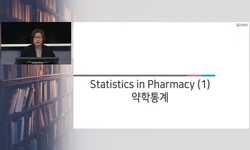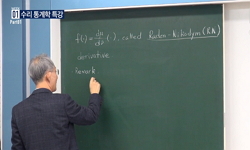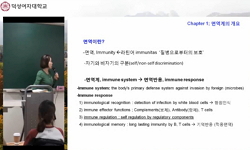Since pharmacies in Korea have about 500 million outpatient prescriptions per year and also sell over-the-counter (OTC) drugs, monitoring Adverse drug reactions(ADRs) in pharmacies is very important, but the completeness of drug ADR reports and report...
http://chineseinput.net/에서 pinyin(병음)방식으로 중국어를 변환할 수 있습니다.
변환된 중국어를 복사하여 사용하시면 됩니다.
- 中文 을 입력하시려면 zhongwen을 입력하시고 space를누르시면됩니다.
- 北京 을 입력하시려면 beijing을 입력하시고 space를 누르시면 됩니다.
Analysis of factors affecting spontaneous adverse drug reaction reporting and completeness of reports by Korean community pharmacists
한글로보기https://www.riss.kr/link?id=T15518945
- 저자
-
발행사항
Seoul : Sungkyunkwan university, 2020
-
학위논문사항
Thesis (Ph.D.) -- Sungkyunkwan university , Department of Pharmacy , 2020. 2
-
발행연도
2020
-
작성언어
영어
- 주제어
-
발행국(도시)
서울
-
형태사항
vii, 148 p. : ill. ; 30 cm
-
일반주기명
Adviser: Ju-Young Shin
Includes bibliographical reference(p. 141-146) -
UCI식별코드
I804:11040-000000157777
- DOI식별코드
- 소장기관
-
0
상세조회 -
0
다운로드
부가정보
다국어 초록 (Multilingual Abstract)
To analyze the factors influencing the ADR reporting, a survey was conducted with community pharmacists. In order to analyze the factors affecting the completeness of the report data, the KAERS (Korea adverse event reporting system) data of KIDS (Korea Institute of Drug Safety & Risk management) from January 1, 2016 to December 31, 2016 was analyzed.
The survey was conducted online from community pharmacists throughout the country and analyzed 382 responses was analyzed. In the analysis of descriptive statistics for each response item, further analysis was conducted by dividing into three groups based on responses to the number of reports in the last three years. Logistic regression analysis was performed to determine the factors affecting ADR reporting and to evaluate statistically significant factors and their magnitudes. In addition, multiple linear regression analysis was conducted to identify factors that affect the completeness of reports at each reporting institution.
As a result of logistic regression, the probability of reporting with a frequency is 10.5% lower with increasing age (p = 0.001), and about 32 times higher than without the ADR reporting program (p = 0.001). If you know how to report it, it's about 54 times higher than it would otherwise be (p <0.001). In community pharmacies, the probability of reporting frequent events increased by 4.1 times (p = 0.034). Regarding attitudes, there were significantly fewer reports of those who said, `I have no time and can’t afford to psychologically to report ADRs.' and ‘It’s complicate ADR report format or report method’
In terms of the completeness of reports, three variables with the absolute value of the regression coefficient of more than 10 points in both models were identified as the variables that have high influence on the completeness confirmed by reporting groups by affiliation and reporting groups by profession. The analysis results by reporting groups by affiliation and reporting groups by profession are as follows. 'Indication for use in the case' (Regression coefficient = -12.99, -12.29), 'Date of start of drug' (Regression coefficient = -12.06, -12.18), 'Date of start of reaction/event' (Regression coefficient = -11.42,- 11.59).
Since pharmacies in Korea have about 500 million outpatient prescriptions per year and also sell over-the-counter (OTC) drugs, monitoring Adverse drug reactions(ADRs) in pharmacies is very important, but the completeness of drug ADR reports and reporting data are still low. Therefore, in this study, it was analyzed the factors affecting ADR reporting by community pharmacists and the factors that influence their completeness in order to find an effective method for increasing the ADR reporting and improving the completeness of the reporting data.
To analyze the factors influencing the ADR reporting, a survey was conducted with community pharmacists. In order to analyze the factors affecting the completeness of the report data, the KAERS (Korea adverse event reporting system) data of KIDS (Korea Institute of Drug Safety & Risk management) from January 1, 2016 to December 31, 2016 was analyzed.
The survey was conducted online from community pharmacists throughout the country and analyzed 382 responses was analyzed. In the analysis of descriptive statistics for each response item, further analysis was conducted by dividing into three groups based on responses to the number of reports in the last three years. Logistic regression analysis was performed to determine the factors affecting ADR reporting and to evaluate statistically significant factors and their magnitudes. In addition, multiple linear regression analysis was conducted to identify factors that affect the completeness of reports at each reporting institution.
As a result of logistic regression, the probability of reporting with a frequency is 10.5% lower with increasing age (p = 0.001), and about 32 times higher than without the ADR reporting program (p = 0.001). If you know how to report it, it's about 54 times higher than it would otherwise be (p <0.001). In community pharmacies, the probability of reporting frequent events increased by 4.1 times (p = 0.034). Regarding attitudes, there were significantly fewer reports of those who said, `I have no time and can’t afford to psychologically to report ADRs.' and ‘It’s complicate ADR report format or report method’
In terms of the completeness of reports, three variables with the absolute value of the regression coefficient of more than 10 points in both models were identified as the variables that have high influence on the completeness confirmed by reporting groups by affiliation and reporting groups by profession. The analysis results by reporting groups by affiliation and reporting groups by profession are as follows. 'Indication for use in the case' (Regression coefficient = -12.99, -12.29), 'Date of start of drug' (Regression coefficient = -12.06, -12.18), 'Date of start of reaction/event' (Regression coefficient = -11.42,- 11.59).
목차 (Table of Contents)
- Chapter 1. INTRODUCTION 1
- 1. Background and Importance of Research 1
- 2. Objective 3
- Chapter 2. THEORETICAL CONSIDERATION 5
- 1. Theoretical Background 5
- Chapter 1. INTRODUCTION 1
- 1. Background and Importance of Research 1
- 2. Objective 3
- Chapter 2. THEORETICAL CONSIDERATION 5
- 1. Theoretical Background 5
- 2. Review of previous research 16
- Chapter 3. RESEARCH CONTENTS AND METHODS 29
- 1. Analysis of factors affecting spontaneous ADR reporting by community pharmacists 29
- 2. Analysis of factors affecting completeness of ADR reports by community pharmacists 36
- Chapter 4. RESEARCH RESULTS 48
- 1. Analysis of factors affecting spontaneous ADR reporting by community pharmacists 48
- 2. Analysis of factors affecting completeness of ADR reports by community pharmacists 66
- Chapter 5. DISCUSSION AND CONCLUSION 131
- 1. Summary and Discussion 131
- 2. Limitations of Research 138
- 3. Significance and conclusion of research 139
- REFERENCES 141











